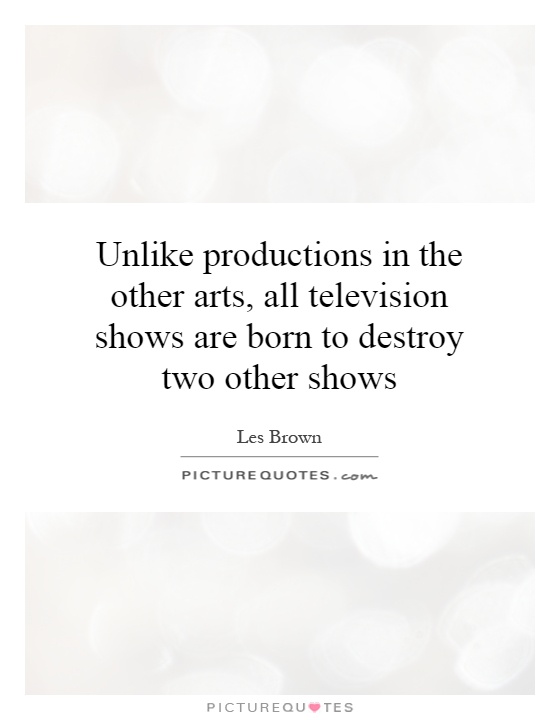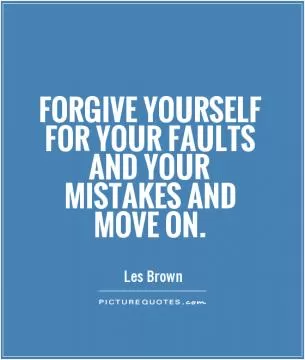Unlike productions in the other arts, all television shows are born to destroy two other shows

Unlike productions in the other arts, all television shows are born to destroy two other shows
Les Brown, a renowned motivational speaker and author, once said, "Unlike productions in the other arts, all television shows are born to destroy two other shows." This statement holds a profound truth about the nature of the television industry and the competitive landscape in which it operates.Television shows are constantly vying for viewership, advertising dollars, and critical acclaim. In order to succeed in this cutthroat environment, shows must not only attract a loyal audience but also outperform their competitors. This often leads to fierce competition between shows, with each one trying to outshine the others in terms of ratings, content, and overall impact.
The idea that television shows are born to destroy two other shows speaks to the inherent nature of the industry. Unlike other forms of art, such as literature or music, television shows are not created in a vacuum. They are part of a larger ecosystem that is constantly evolving and shifting. In order to survive and thrive, shows must be willing to adapt and innovate, often at the expense of their competitors.
This competitive dynamic can be both exhilarating and exhausting for those involved in the television industry. On one hand, it pushes creators to push the boundaries of what is possible and to constantly strive for excellence. On the other hand, it can create a high-pressure environment where success is measured in terms of ratings and revenue rather than artistic merit.
Les Brown's statement also highlights the ephemeral nature of television shows. While some shows may enjoy long and successful runs, the majority are destined to be short-lived. This is due in part to the competitive nature of the industry, where only the strongest and most innovative shows are able to survive.












 Friendship Quotes
Friendship Quotes Love Quotes
Love Quotes Life Quotes
Life Quotes Funny Quotes
Funny Quotes Motivational Quotes
Motivational Quotes Inspirational Quotes
Inspirational Quotes